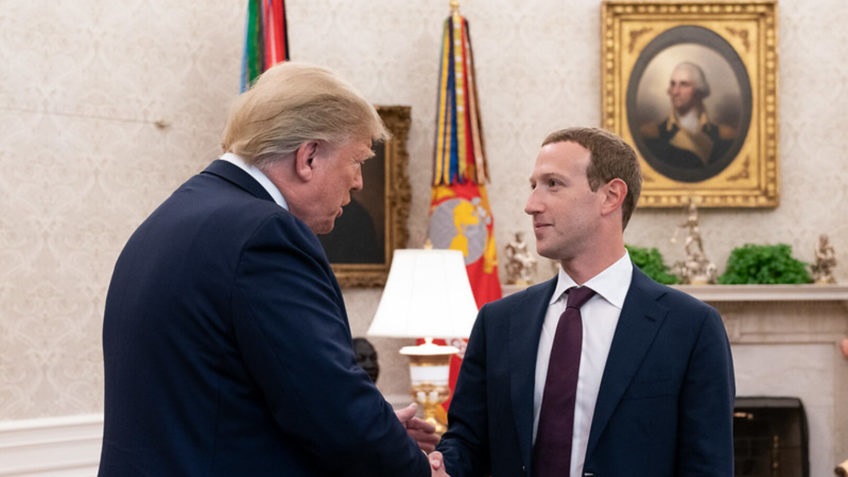
Published 12/19/2024 12:56 | Edited 12/19/2024 17:43
With Donald Trump’s return to power, the relationship between large technology corporations (the so-called “big techs”) with the United States government takes on a new chapter, marked by strategic submission and the abandonment of any commitment to democratic values. Companies that previously expanded their marketing by selling the idea of being bastions of freedom of expression and resistance to the concentration of power are now bowing to the elected president, in a move that reveals the true essence of their interests.
During his first term, Trump faced open resistance from technology giants. Companies like Meta and Amazon, alongside leaders like Mark Zuckerberg and Jeff Bezos, have often taken a stance against their policies, whether in court or in public opinion.
But now, with the political and economic scenario in the United States changing, these same executives are reconnecting with Trump, abandoning what they previously called “principles”.
Mark Zuckerberg, who even banned Trump from his platforms after the invasion of the Capitol, was seen having dinner with the president-elect. Jeff Bezos, once a fierce critic, has pledged financial support for inauguration events. Even TikTok’s Shou Zi Chew, whose platform has been the target of Trump’s attempted bans in the past, appears willing to call a truce.
What drives this turnaround? Firstly, the interest in preserving their business models in the face of a government that has already demonstrated a willingness to attack companies that do not support it. Furthermore, the global economic crisis and increased regulations during the Biden administration have pressured big techs to seek protection in the State — as long as that State proves friendly to their private agendas.
These movements are not just opportunistic; they expose these corporations’ lack of commitment to any type of ethics or social responsibility. The discourse of “innovation” and “freedom” is left aside as soon as the opportunity arises to reinforce their monopolies and avoid unfavorable regulations.
This alignment between big tech and the Trump administration also reflects the weakening of political resistance. Democrats, who once stood as a barrier to Trump, are now showing signs of apathy or internal division.
Despite the climate of submission that marks the beginning of this second term, the conflicts have not disappeared. Trump’s promises, such as trade tariffs and mass deportations, can quickly collide with the interests of big tech itself and cause disruption.
What is emerging, however, is a scenario in which large technology companies are betting on an alliance with Trump as a way to guarantee their survival — even if this means compromising principles, democracy and the public interest.
Under the facade of innovation and progress, big techs appear to be accomplices in an authoritarian and corporate project. In the end, submission to Trump is yet another example of how these companies put profit above all else, making it clear that their ethical commitments were never more than convenient rhetoric.
Source: vermelho.org.br

